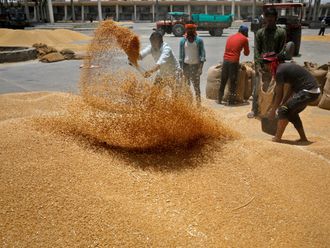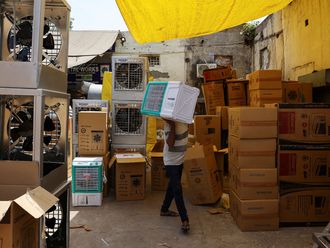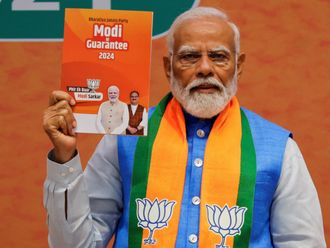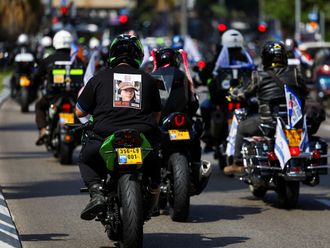Udaipur, India: After giving birth to her second child. a baby boy, Preeti Gameti wasn’t sure whether she was happy or worried. An anaemic Gameti, 27, had lost a lot of blood during labour and was too weak to breastfeed the newborn.
The baby’s condition worsened and Gameti’s hopes of keeping him alive faded. A local doctor in Rajasthan’s Udaipur district suggested it was high time the child received mother’s milk.
It was here that Divya Mothers Milk Bank (DMMB) in Udaipur, one of the very few such functional units in north India, came to Gameti’s help by providing mother’s milk in time to the newborn.
Set up in April 2013, DMMB has saved 644 infants whose biological mothers are unable to breastfeed them for a variety of reasons, including being HIV-affected or
malnourished.
Even infants — specially girls — abandoned by parents in Rajasthan’s highly patriarchal society are fed here.
“Gameti’s baby was 15 days old and weighed a mere 900gm when he was brought here. He was critical, but in 10 days his weight increased to 1.5kg,” S.L Dharmawat, chief coordinator at DMMB, told IANS.
The milk bank is managed by NGO Maa Bhagwati Vikas Sansthan, which also runs a cradle scheme that has managed to save the lives of over 100 female infants.
Rajasthan has a high infant mortality rate. According to the 2011 census, the desert state’s infant mortality rate was 52 per 1,000 births as compared to the India figure of 44.
The overall picture too is grim. According to a report prepared by Save the Children, a not-for-profit organisation and Joy Lawn, a professor at London School of Hygiene and Tropical Medicine, a staggering 1.013 million babies in India died on the first day after birth in 2012.
“Seventy-five per cent of infants in NICU (neonatal intensive care unit) die due to pneumonia and diabetes. Twenty-two per cent of such deaths can be prevented by feeding mother’s milk,” Maa Bhagwati Vikas Sansthan founder Devendra Agrawal told IANS.
“The recovery of babies born prematurely is 40 per cent faster if they are provided with mother’s milk and this is what we do here,” Agarwal added.
Agarwal, who also teaches yoga, claims the number of mothers visiting DMMB — who can’t produce milk or who have it in excess — has been increasing steadily.
“Till November 30, 1,405 women have donated 8,389 units of milk. One unit is 30ml,” he said.
Before pooling, the donor’s milk is tested for various diseases like HIV, hepatitis B and the like.
The milk is sterilised in a hot air oven for 30 minutes and pasteurised at 65 degrees Celsius for 30 minutes.
The milk is stored at temperatures below -20 degrees Celsius and does not perish for six months if kept frozen.
“Mother’s milk is like elixir for newborns. And milk banks like us are trying to do their bit. But we need more of them. The whole of Rajasthan has one — us,”, DMMB chief operations officer R.K. Agarwal told IANS.
It’s not just about feeding children. Devender Agarwal claims the milk bank has also helped over 2,000 women produce milk who could not do so earlier because of complications in their breasts.
“We made this possible through suction,” Agarwal said.
He said India has only 10 such milk banks.
“I have heard of functional milk banks in Pune, Mumbai, Surat and some other cities. I want that every city in India has a milk bank,” he said.
Added R.K. Agarwal: “Every year 2,76,00,000 births are reported in India. Imagine if half of their mothers donate milk, infant mortality can be drastically reduced.”
He said a country like Brazil has over 200 human milk banks — perhaps the highest in the world.
“It is because of milk banks, Brazil has reduced child deaths by 70 per cent. India should also follow this model,” he added.












